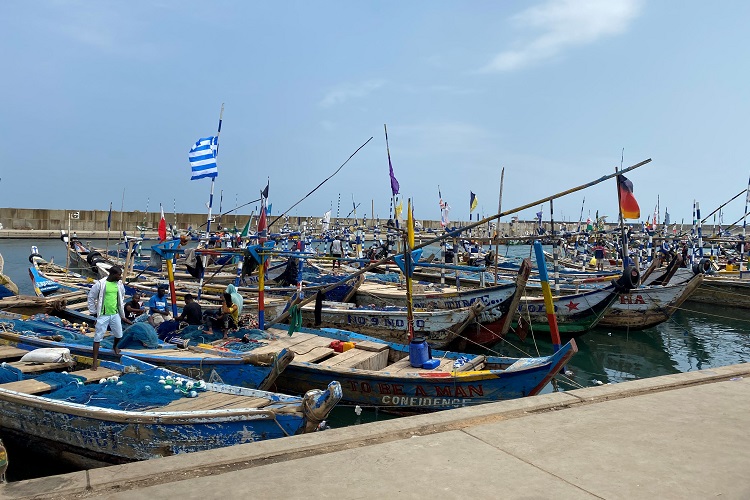Survival of the richest – attempts to curb illegal fishing are hurting small-scale fishers in Africa most

Attempts to curb illegal fishing in African waters while turning a blind eye to large fishing fleets which are most damaging to fish stocks are putting small-scale fisheries at risk, according to new research from the University of St Andrews.
The research, published in Marine Policy, found that fishing restrictions and the advancement of fishing arrangements with Distant Water Fishing Nations (DWFNs) are causing small-scale fisheries to struggle financially despite being best placed to support local economies and food needs.
Growing global demand for seafood has attracted diverse actors to African waters, including DWFN fleets, resulting in complex fisheries governance challenges, unsustainable rates of fishing and rising fisheries-related crimes.
To reverse these impacts, some African states are deploying various fisheries governance mechanisms such as closed fishing seasons in Ghana and reducing inshore fishing areas in Liberia, Madagascar and Somalia.
However, drawing on the extensive experience of experts, the review of literature, fisheries databases, international and regional agency reports, governmental and non-governmental reports as well as case studies from West and East Africa, the new research concluded that fishing restrictions are instead actually benefiting the industrial fishing sectors.
Dr Ifesinachi Okafor-Yarwood, of the School of Geography and Sustainable Development at the University of St Andrews, said: “Despite a higher incidence of illegal, unreported and unregulated fishing in industrial fisheries compared to the small-scale fisheries, fisheries governance mechanisms continue to advance the ‘Survival of the Richest’ – the industrial sector, to the detriment of the ‘Fittest’ – the small-scale fisheries.
“The small-scale fisheries support millions of jobs and are better adapted to meet the continents’ nutrition and socio-economic security.
“For the fisheries sector to contribute to the sustainable development of Africans, states must redirect governance towards regulating the industrial sector, emphasising equitable access for the small-scale fisheries whilst prioritising ecological sustainability.”
Co-author, WoldFish Executive Director for Science and Research Professor Edward H Allison, said: “The most important contributions that African fisheries make to African economic development is in the jobs, livelihoods and nutritious diets that they support, and it is small-scale or artisanal inland and inshore marine fisheries that provide most of these benefits.
“Securing these fisheries is thus the most important task for fisheries governance on the continent. This can be achieved by both prioritising small-scale fisheries development and directing regulatory efforts to the industrial and distant water fleets. At the moment, as our paper shows, it’s too much the other way round.”
The study particularly looks at cases in Ghana, Liberia, Madagascar and Somalia. The sustainable use of fisheries resources is a priority of the African Union in developing the Blue Economy.
The paper ‘Survival of the Richest, not the Fittest: How attempts to improve governance impact African small-scale marine fisheries’ is published in Marine Policy and is available online.
Please ensure that the paper’s DOI (doi.org/10.1016/j.marpol.2021.104847) is included in all online stories and social media posts and that Marine Policy is credited as the source.
About WorldFish
WorldFish is an international, non-profit research and innovation institution that creates, advances and translates aquatic food systems science into scalable solutions. WorldFish vision an inclusive world of healthy, well-nourished people and a sustainable blue planet, now and in the future.
A core element of the 2030 WorldFish Research and Innovation Strategy: Aquatic Foods for Healthy People and Planet is focused on building the resilience of aquatic food systems to shocks, which is critical to Covid-19 response and recovery.
WorldFish is part of CGIAR, the world’s largest agricultural research and innovation network. For more information, please visit the WorldFish Center website.
About CGIAR
CGIAR is the world’s largest global agricultural innovation network. CGIAR provides evidence to policy makers, innovation to partners, and new tools to harness the economic, environmental and nutritional power of agriculture. For more information, please visit the CGIAR website.
Issued by the University of St Andrews Communications Office.